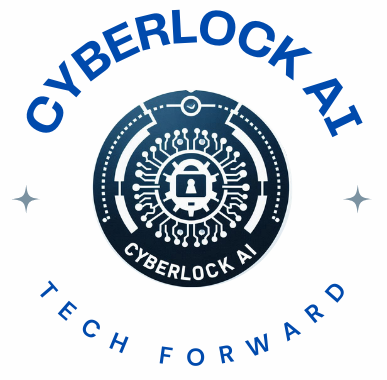 Machine learning has become a cornerstone in the innovation landscape, fundamentally changing industries from healthcare to finance. It’s not just about futuristic technology; it’s shaping how businesses make decisions, streamline operations, and create value. This makes an education in machine learning not just beneficial but essential for those navigating today’s tech-driven world.
Machine learning has become a cornerstone in the innovation landscape, fundamentally changing industries from healthcare to finance. It’s not just about futuristic technology; it’s shaping how businesses make decisions, streamline operations, and create value. This makes an education in machine learning not just beneficial but essential for those navigating today’s tech-driven world.
With machine learning skills under your belt, loads of doors swing open career-wise. Imagine designing smarter algorithms for a search engine, enhancing user experience on a global social media platform, or perhaps contributing to breakthrough medical diagnostics. These opportunities are not just dreams but real, attainable careers for those skilled in machine learning.
The thirst for machine learning expertise is soaring. Companies everywhere are on the hunt for experts who can decode data and produce actionable insights. This demand ensures both job security and competitive salaries, adding another layer to why gaining this knowledge can be a game-changer.
Investing in machine learning education gives you an edge in the job market and equips you with a toolkit to solve complex issues, automate tasks, and innovate within your field. As this technology continues to weave itself into the fabric of daily life, staying ahead with the right education becomes your ticket to thriving in many futuristic landscapes ahead.
Core Components of a Comprehensive Machine Learning Course
Diving into the world of machine learning means you’ll be grappling with a mix of theory and practical application. A solid course starts with the basics – math and statistics. These are the building blocks that give you the power to understand data on a deep level.
Programming languages like Python will become your trusty sidekicks. They’re crucial tools for writing the code that makes machine learning magic happen. Many courses offer hands-on projects that allow you to get comfortable with these languages, helping you see the direct impact of your work.
Once you’ve got the basics under control, it’s time to explore more advanced topics like deep learning and neural networks. These areas focus on creating algorithms that can learn and adapt, simulating human-like decision-making processes.
You’ll also need to get familiar with essential tools like TensorFlow or PyTorch. Learning how to work with these platforms is key as they’re widely used for building robust machine learning models.
A well-rounded course also touches on data pre-processing and feature engineering. Mastering these skills means you can clean up messy data and extract meaningful insights, which are crucial steps before the actual modeling begins. As you progress in your learning, these advanced skills can set you apart in the industry.
Evaluating Machine Learning Certification Programs: What to Look For
Choosing the right certification program can feel like navigating a maze. The first thing to consider is the program’s accreditation. A certified course backed by reputable institutions not only gives weight to your resume but ensures a high standard of education.
In the age of digital learning, deciding between an online and in-person experience is crucial. Online courses offer flexibility, allowing you to learn at your own pace and from wherever you are. Meanwhile, attending classes in person might provide more direct interaction, fostering immediate feedback and networking opportunities.
Don’t overlook the importance of networking. A good program will encourage interactions between students and industry experts, offering you the chance to build meaningful connections. Peer learning through group projects or discussion forums can significantly enrich your understanding and problem-solving skills.
Consider what kind of post-certification support is available. Some programs offer mentorships or partnerships with companies, providing a smoother transition into the working world. This type of support can be invaluable as you look to apply your new skills in real-world settings and continue growing in your machine learning journey.
Top Machine Learning Courses & Certifications to Consider
When you’re ready to dive into a certification, selecting the right course could be overwhelming with so many options flooding the market. Start by checking out programs from well-known institutions like Stanford, MIT, or the University of California, Berkeley. These offer comprehensive courses that cover both foundational concepts and cutting-edge technologies.
Platforms like Coursera and edX host some of these university-backed courses online, providing flexible learning schedules. For more specialized focus, online bootcamps such as Udacity’s Machine Learning Engineer Nanodegree provide intense, project-driven learning experiences.
Don’t just stick to big names. Look for courses that align with your specific career goals and learning preferences. Reviews and testimonials from past participants can often highlight the strengths and potential pitfalls of these programs.
Community feedback is a goldmine. Engaging with forums or LinkedIn groups to see what industry peers have to say about different certifications can offer insights into how these courses impact career trajectory and skill development.
Balance the course cost against its offering. While free resources are abundant, sometimes investing in a paid course or certification can offer more structured guidance, assessed assignments, and interaction with industry experts, all of which are crucial for diving deeper into the field of machine learning.
Embarking on the Machine Learning Journey: Tips for Success
Embracing a career in machine learning is as exciting as it is challenging. Balancing education with real-world application is key. Projects, internships, or freelance gigs can provide hands-on experience that complements your formal learning, helping you apply theoretical knowledge to actual problems.
Staying curious and committed to lifelong learning sets successful professionals apart. Machine learning isn’t static. New models, techniques, and technologies regularly emerge, making it essential to continually update your skills.
Networking isn’t just a buzzword; it’s a vital tool for career growth. Engaging with peers, mentors, and industry experts through meetups, online forums, or social media can lead to unexpected opportunities and collaborations.
Keep an open mind and be ready to adapt. The field of machine learning thrives on innovation and change. Cultivating the ability to learn, unlearn, and relearn can be your greatest asset as you navigate through your journey.
Remember, success isn’t just about knowledge amassed; it’s about the creative and ethical application of what you’ve learned. Aim to contribute positively to both your field and community, using the power of machine learning responsibly and effectively.
